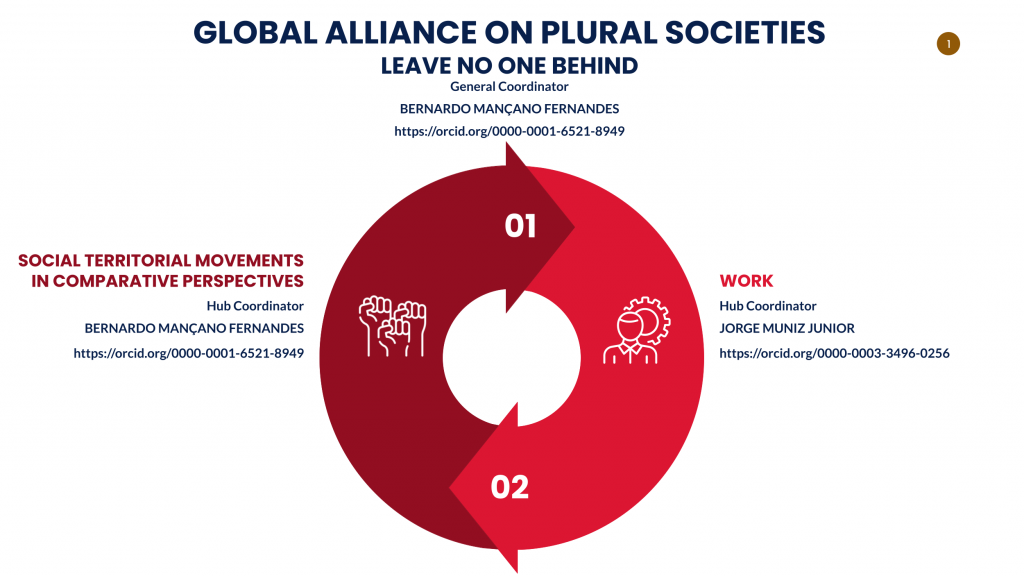This Global Research Alliance Impacts of Technology and Work: leaving no one behind will bring together researchers from six universities: São Paulo State University (UNESP), Cornell University, Universidad Autónoma de México, Queen Mary University of London, University of Birmingham, Massey University in five countries: Brazil, United States of America, Mexico, United Kingdom and New Zealand in the study of two thematic dimensions related to the objectives of sustainable development (SDGs). The claim and realization of the SDGs, through public policies, will be analyzed in the actions of movements and other socio-territorial institutions through impacts on technology and work, producing different territories. The territorialities resulting from these impacts will be analyzed by socio-spatial fragmentation, differentiation, segregation, exclusion, identities, resistance, resilience, confrontations and disputes in food production and consumption, education, health for example. Ending poverty, taking care of the planet, of people, are broad objectives that contain all dimensions of sustainability. Our challenge is to formulate research projects through cooperation actions that involve more professors and students from our universities, in addition to non-academic partners.
Contributing to the theoretical and methodological advancement of knowledge, including the application of results through public policies and open technologies for sustainable development is expected by the partner teams. The results will be demonstrated through publications and debates at scientific events and scientific training. The production of a database and the preparation of propositional documents for the formulation of public policies, in line with the SDGs, will be other priority activities of this Alliance. This initiative will promote direct dialogue with the UN representative offices in the five countries to build a collaborative agenda.

UNESP Global Research Alliance (GRA) Call
- Thematic network of higher education and research institutions from different countries, composed of highly qualified researchers;
- Main institutional cooperation mechanism;
- Institutional initiative, supported by the Capes-PrInt Project, to establish Global Research Alliances;
- Focused on Unesp’s Strategic Internationalization Plan.
UNESP GRA Objectives
- Strengthen collaboration in research, teaching and community service activities, focused on the Sustainable Development Goals (SDGs) of the United Nations (UN);
- Seek national and/or international financing for the development of projects;
- Develop joint activities with society (communities, industries, governments, etc.).
UNESP GRA Approach
- Develop common projects and exchange of personnel to share data, information, knowledge and experiences;
- Offer a group of disciplines to students of partners;
- Organize an annual research workshop;
- Create a scientific repository to the research outcomes achieved.
Global Research Alliance Objective
Analyze the dimensions of labour, socio-territorial movements and socio-spatial fragmentation, in relation to the objectives of Agenda 2030 (SDG / UN), in a comparative perspective on different realities of countries in the South and Global North to contribute to the international debate on policies of sustainable development aligned with the commitment to “leave no one behind”.